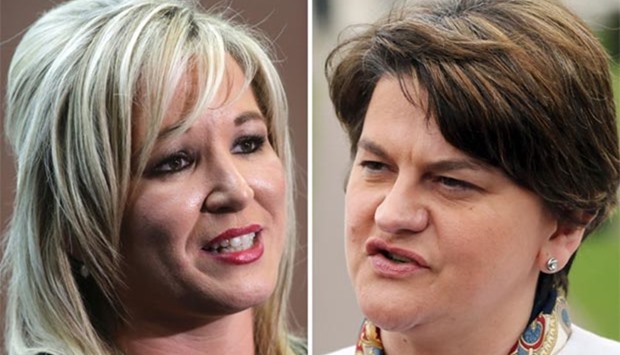Northern Ireland's squabbling political parties reconvened in Belfast on Monday in an attempt to end a stalemate that has left the British province without a functioning government for almost three months.
The power-sharing executive, the cornerstone of a peace process that ended three decades of violent conflict, fell apart in January when the republican Sinn Fein party pulled out.A snap election followed on March 2, but a three-week deadline for Sinn Fein and the pro-British Democratic Unionist Party (DUP) came and went last week with no resolution.
The British government has given both sides more time to resolve their differences -- but it warned that London could take direct control after its parliament resumes from April 18.
With no government in place, Northen Ireland has not been able to approve a budget for this year, which could have an impact on public services.
"We would urge all parties to take the opportunity to try to resolve the situation," a spokesman for British Prime Minister Theresa May told reporters in London.
In a sign that negotiations are likely to be arduous, Sinn Fein leader Gerry Adams has said that the death last month of his former colleague, ex-deputy first minister Martin McGuinness, would make it even more difficult to build the kind of trust that had made local government possible.
"Martin's gone, so even if we were able to cobble something together tomorrow it wouldn't last, so I want it to be sustainable," he told Sky News on Sunday.
McGuinness pulled out of the power-sharing deal with DUP First Minister Arlene Foster in January, after a breakdown in trust over several issues, sparked by a row over a botched energy subsidy scheme.
Negotiations so far have served only to underscore the continuing disagreement between Sinn Fein and the DUP over how to deal with legacy issues from the violent conflict, including a bill of rights and the status of the Irish language.
Britain's vote to leave the EU is also weighing on the talks process, as Northern Ireland will arguably be more affected than any other area in Europe after Brexit.
It will share the only land border between Britain and the EU, and is highly dependent on cross-border trade with the Republic of Ireland.

